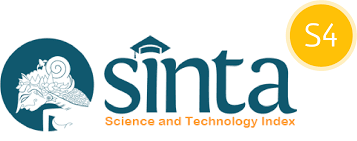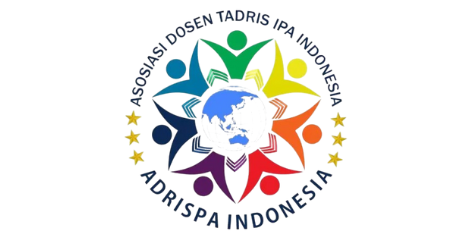Proses Pembelajaran Biologi di SMA Melalui Pendekatan Saintifik dalam Mengembangkan Keterampilan Pemecahan Masalah Siswa: Studi Kasus SMA Negeri Balung
DOI:
https://doi.org/10.35719/vektor.v3i2.66Keywords:
Biology learning, independent and scientific curriculumAbstract
Penelitian ini bertujuan untuk mengidentifikasi faktor-faktor yang menghambat siswa di Balung mengembangkan keterampilan pemecahan masalah selama penerapan kurikulum Merdeka serta bagaimana proses pembelajaran biologi SMA melalui pendekatan saintifik. Penelitian kualitatif deskriptif dengan pendekatan studi kasus merupakan metodologi yang digunakan. Penelitian ini dilakukan di salah satu SMA Negeri Balung. Guru biologi dan siswa kelas XI menjadi sumber data primer penelitian. Observasi, wawancara, dokumentasi, dan angket jawaban guru dan siswa semuanya digunakan sebagai metode pengumpulan data. Hasil dari proses wawancara, observasi, dan dokumentasi penelitian adalah temuan. Kurangnya literasi membaca, rendahnya kemauan belajar, rendahnya rasa percaya diri siswa, pelaksanaan pembelajaran yang masih menggunakan model tradisional, dan sarana prasarana yang kurang mendukung merupakan variabel dalam pengembangan kemampuan pemecahan masalah. Meskipun terdapat beberapa faktor yang menghambat pengembangan keterampilan, ditetapkan bahwa penerapan kurikulum otonom untuk pengembangan kemampuan pemecahan masalah melalui proses pembelajaran dengan pendekatan saintifik di SMA Negeri di Balung dikategorikan baik.
Kata Kunci: kurikulum merdeka dan saintifik, pembelajaran bioogi
This study aims to identify the factors that hinder students in Balung from developing problem solving skills during the application of the Merdeka curriculum and how the high school biology learning process uses a scientific approach. Descriptive qualitative research with a case study approach is the methodology used. This research was conducted in one of the Balung State Senior High Schools. Biology teachers and students of class XI became the primary data sources for the research. Observations, interviews, documentation, and teacher and student questionnaires were all used as data collection methods. The results of the interview process, observation, and research documentation are the findings. Lack of reading literacy, low willingness to learn, low self-confidence of students, implementation of learning that still uses traditional models, and inadequate infrastructure are variables in the development of problem solving abilities. Although there are several factors that hinder the development of skills, it is determined that the implementation of an autonomous curriculum for developing problem solving skills through a learning process with a scientific approach at SMA Negeri in Balung is categorized as good.
Keywords: biology learning, independent and scientific curriculum
References
Andi, P. (2011). Memahami metode-metode penelitian. Jogjakarta: Ar-Ruzz Media
Ayuningrum, S., & P. Endah. (2016). Analisis Hambatan Guru Biologi SMA Di Kota Semarang Dan Pemecahannya Dalam Implementasi Kurikulum 2013. Journal Of Biology Education. 5(1), 1-7.
Bahri, A., Putriana, D., & Idris, I. S. (2018). Peran PBL dalam Meningkatkan Keterampilan Pemecahan Masalah Biologi. Sainsmat: Jurnal Ilmiah Ilmu Pengetahuan Alam, 7(2), 114-124.
Fitrianti, F. (2018). Prinsip Kontinuitas Dalam Evaluasi Proses Pembelajaran. Al-Ishlah: Jurnal Pendidikan.10(1),89-102.
Miles, M.B., & A.M. Huberman (2014). Analisis Data Kualitatif. Jakarta: Penerbit Universitas Indonesia (UI-Press).
Moleong, Lexy J. (2016). Metodologi Penelitian Kualitatif. Jakarta : Rosdakarya.
Napitupulu, E. E. (2008). Mengembangkan Strategi dan Kemampuan Siswa Memecahkan Masalah Matematik. Pythagoras: Jurnal Pendidikan Matematika, 4(2), 26-36.
Downloads
Published
How to Cite
Issue
Section
License
Copyright (c) 2022 miftakhul janah, Muhammad faruq

This work is licensed under a Creative Commons Attribution-ShareAlike 4.0 International License.
Authors who publish with this journal agree to the following terms:
- Authors retain copyright and grant the journal right of first publication with the work simultaneously licensed under the terms of the CC BY-SA 4.0 License that allows others to share the work with an acknowledgment of the work's authorship and initial publication in this journal.
- Authors are able to enter into separate, additional contractual arrangements for the non-exclusive distribution of the journal's published version of the work (e.g., post it to an institutional repository or publish it in a book), with an acknowledgment of its initial publication in this journal.
- Authors are permitted and encouraged to post their work online (e.g., in institutional repositories or on their website) prior to and during the submission process, as it can lead to productive exchanges, as well as earlier and greater citation of published work.







